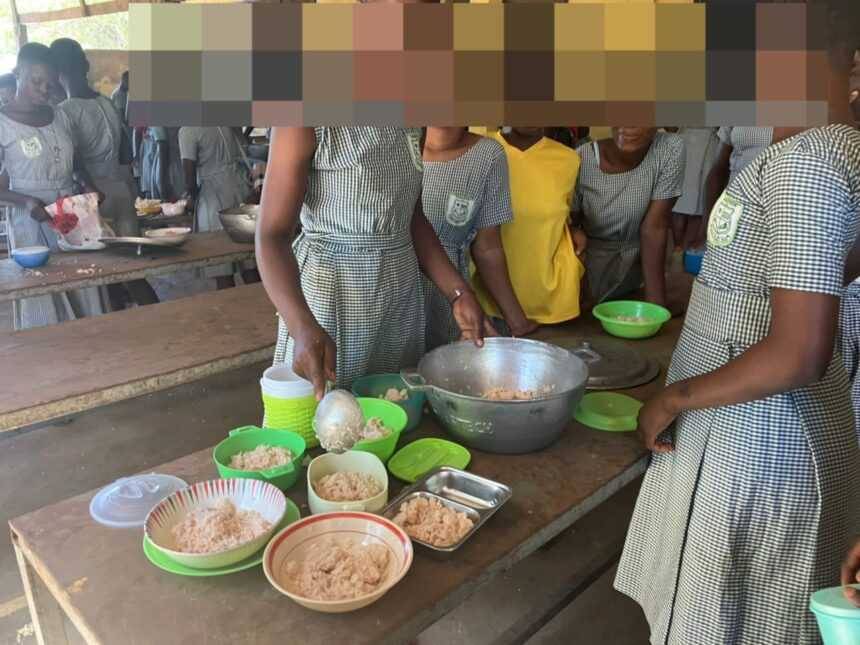Students at Chereponi Senior High Technical School (SHTS) in the North East Region have raised serious concerns about the quality of food being served in their cafeteria, citing unwholesome and unhygienic meals that pose health risks. The issue has gained urgency due to a cholera outbreak in nearby areas, heightening fears among students.
Reports from students reveal troubling practices in the preparation of meals, including the use of utensils not washed with soap and the presence of old food particles in meals. One student, desperate for intervention, stated, “The food they are giving us is not good for our health. We need urgent help.â€
Another expressed frustration over the conditions, describing the treatment as “inhumane.†The student added, “They wouldn’t even give this food to their pets. We’ve seen old food particles in our meals. Please, help us.â€
The situation has taken a toll on the students' health. A student noted that frequent trips to the hospital have become the norm, saying, “We’ve been sending our colleagues to the hospital nearly every day. Between 10 and 15 students are taken for treatment regularly.â€
A staff member at the Chereponi District Hospital confirmed that they admit between five and ten students daily, primarily for stomach-related illnesses. Community members have also observed students often carrying their peers to the hospital.
Despite the growing health concerns, the school’s Headmaster, Fuseini Mohammed, denied knowledge of the issue, claiming that no one had formally reported it. However, students refuted this, stating that they had raised the matter with the school’s management, only to be told that they could not change the food supplied by the government.
Further complicating the issue, students allege that management has restricted them from speaking openly about the food quality. Many now turn to the public for support, hoping external intervention will bring resolution.
The outcry highlights broader issues within Ghana’s education sector, particularly the provision of quality meals under government programs. Access to nutritious and safe food is critical for students’ well-being and academic performance. The failure to address these concerns risks not only the health of the students but also their trust in the system.
As the students’ appeals gain attention, the government and school authorities are urged to prioritize this issue. Investigations into the quality of food provided should be conducted immediately, and swift action must follow to ensure that the meals meet health and safety standards.
Source: 3News




No comments yet
Be the first to share your thoughts!